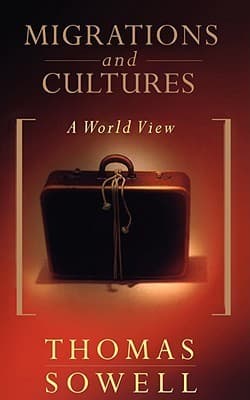Thomas Sowell's Immigration Insights: From Economic Enrichment to Border Control Debates

Economist Thomas Sowell's long-standing views on immigration continue to resonate in contemporary discussions, as highlighted by a recent tweet from "Thomas Sowell Quotes" stating, "Thomas Sowell on why his views on immigration remain relevant." Sowell's extensive work, particularly his 1996 book Migrations and Cultures: A World View, offers a detailed analysis of how various immigrant groups have shaped economies and societies globally. His research posits that "nothing is more common than to have poverty-stricken immigrants become more prosperous in a new country and to make that country more prosperous as well," a central tenet of his perspective.
Sowell's studies reveal that immigrants often bring specific skills, cultural attitudes towards work, and risk-taking that contribute significantly to their new homelands. He examined diverse groups, including Italians, Chinese, Japanese, and Indians, noting how their distinct cultural patterns influenced their economic integration and success. He argued that migrations are frequently selective, drawing individuals with ambition and skills, and that disparities in occupational and income representation among groups are a global historical norm, often persisting across generations.
While acknowledging the economic benefits, Sowell also addressed the complexities and challenges of immigration policy. He emphasized the critical importance of border control, asserting that "if you don't control the borders, it doesn't matter what immigration laws you have." His later writings have critiqued the use of terms like "undocumented" for illegal immigrants and raised concerns about the financial and social costs to host populations, particularly within a welfare state context.
Sowell's perspective also delves into the nuances of assimilation, suggesting that while immigrants generally adapt, some liberal elites may not adequately encourage this process. He challenged the notion of a generic "immigrant," stressing that different groups possess varied educational backgrounds and make distinct contributions. His work continues to provide a framework for understanding the multifaceted impacts of human migration, from economic dynamism to policy considerations.